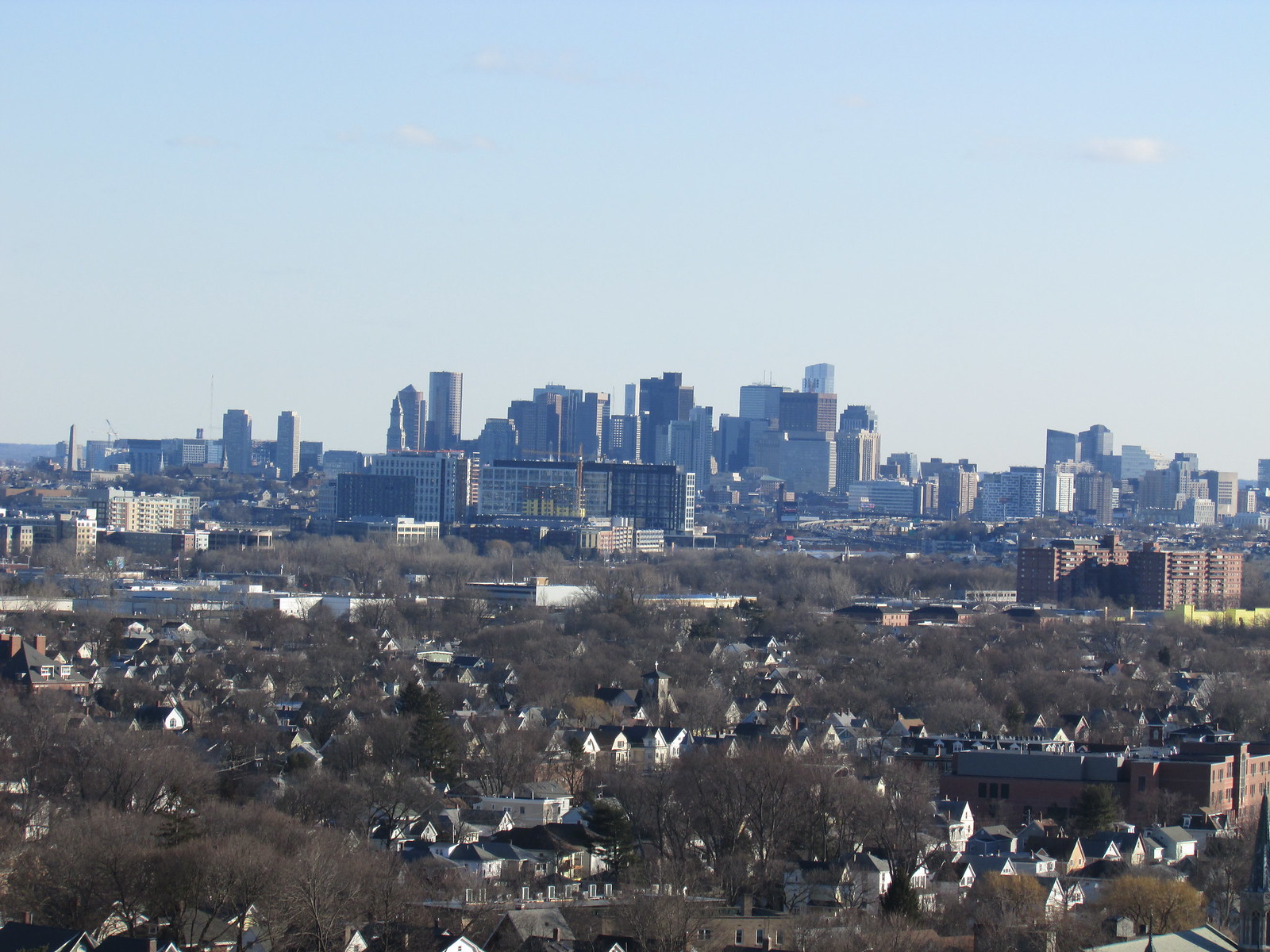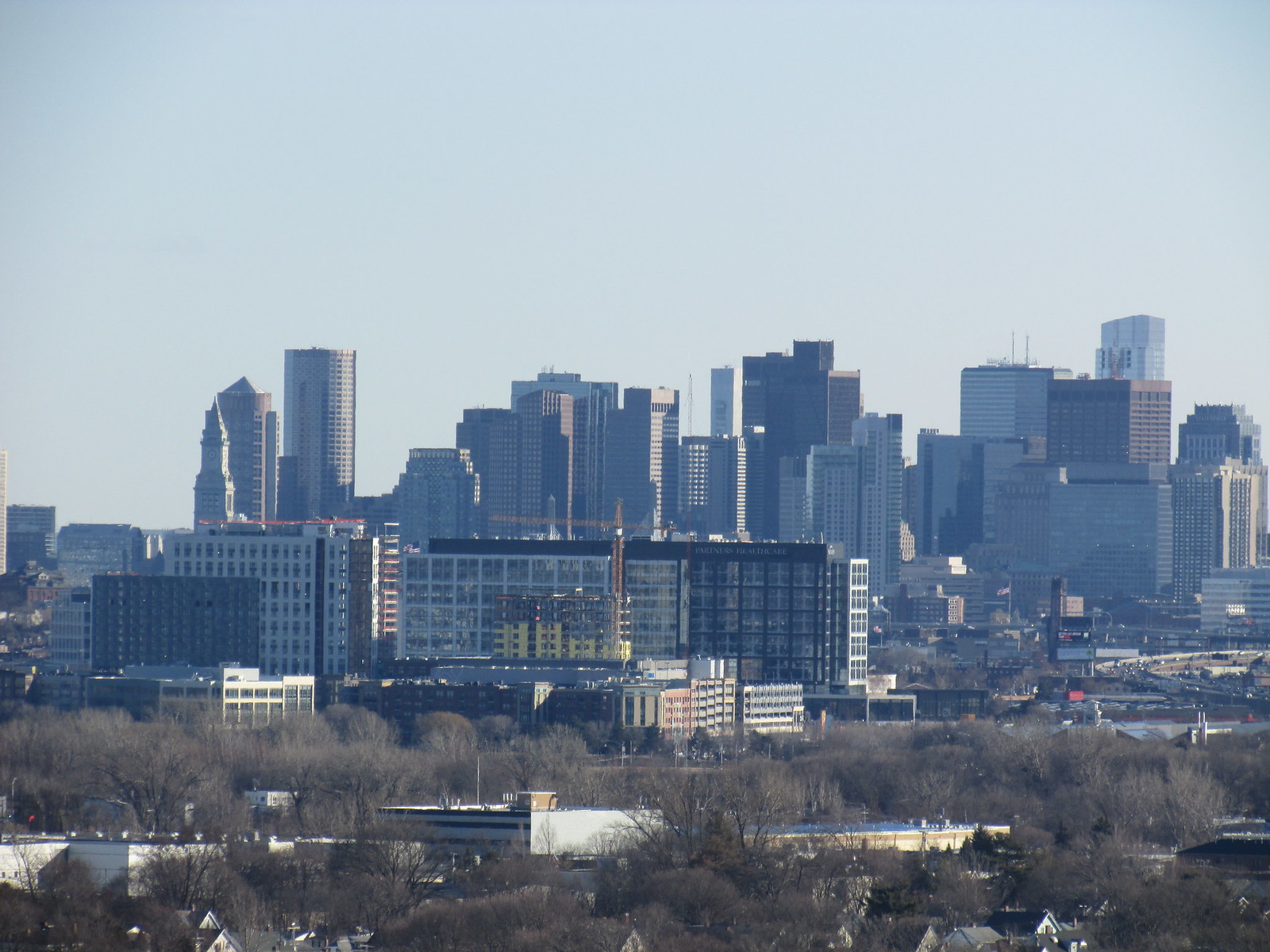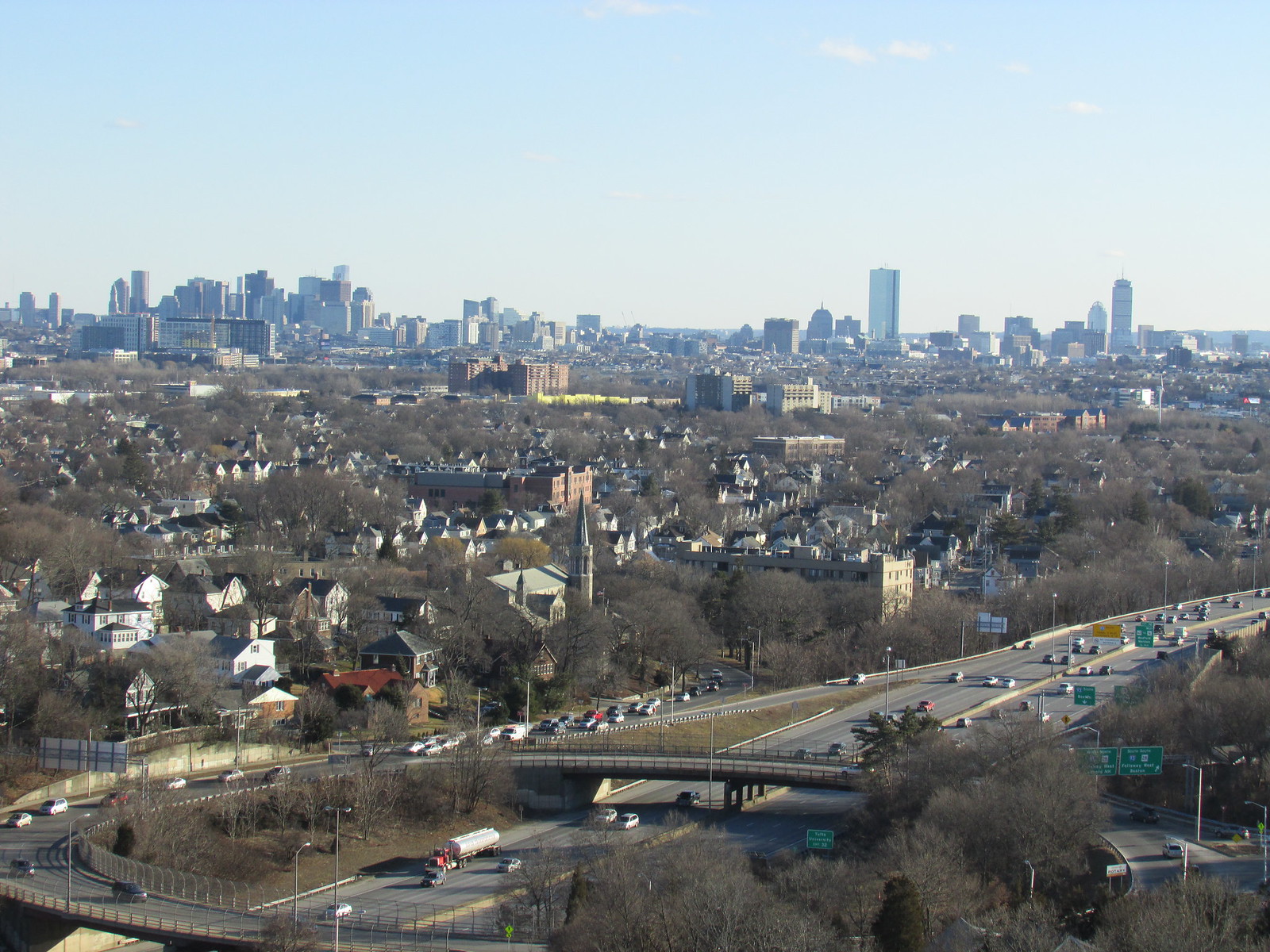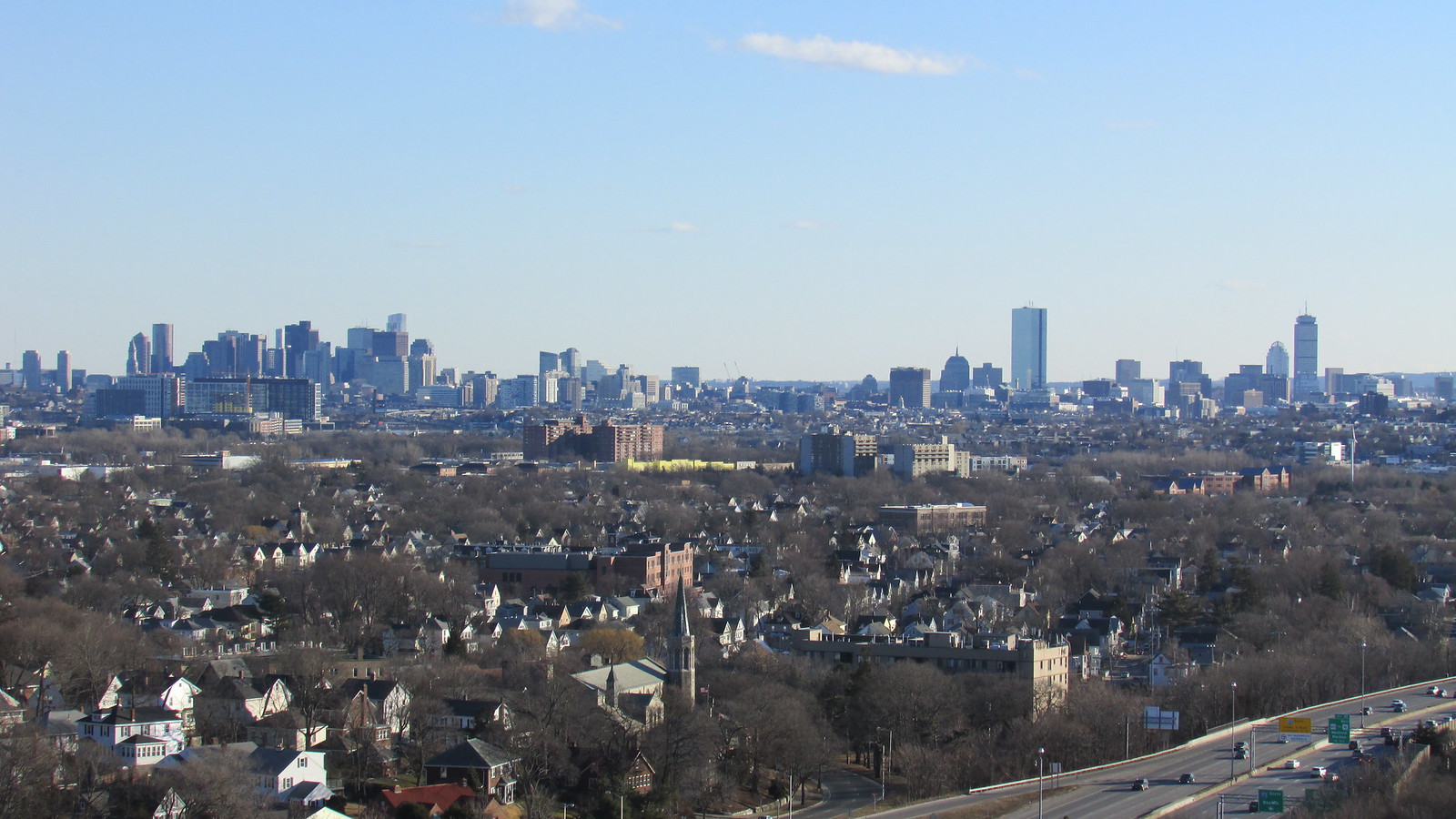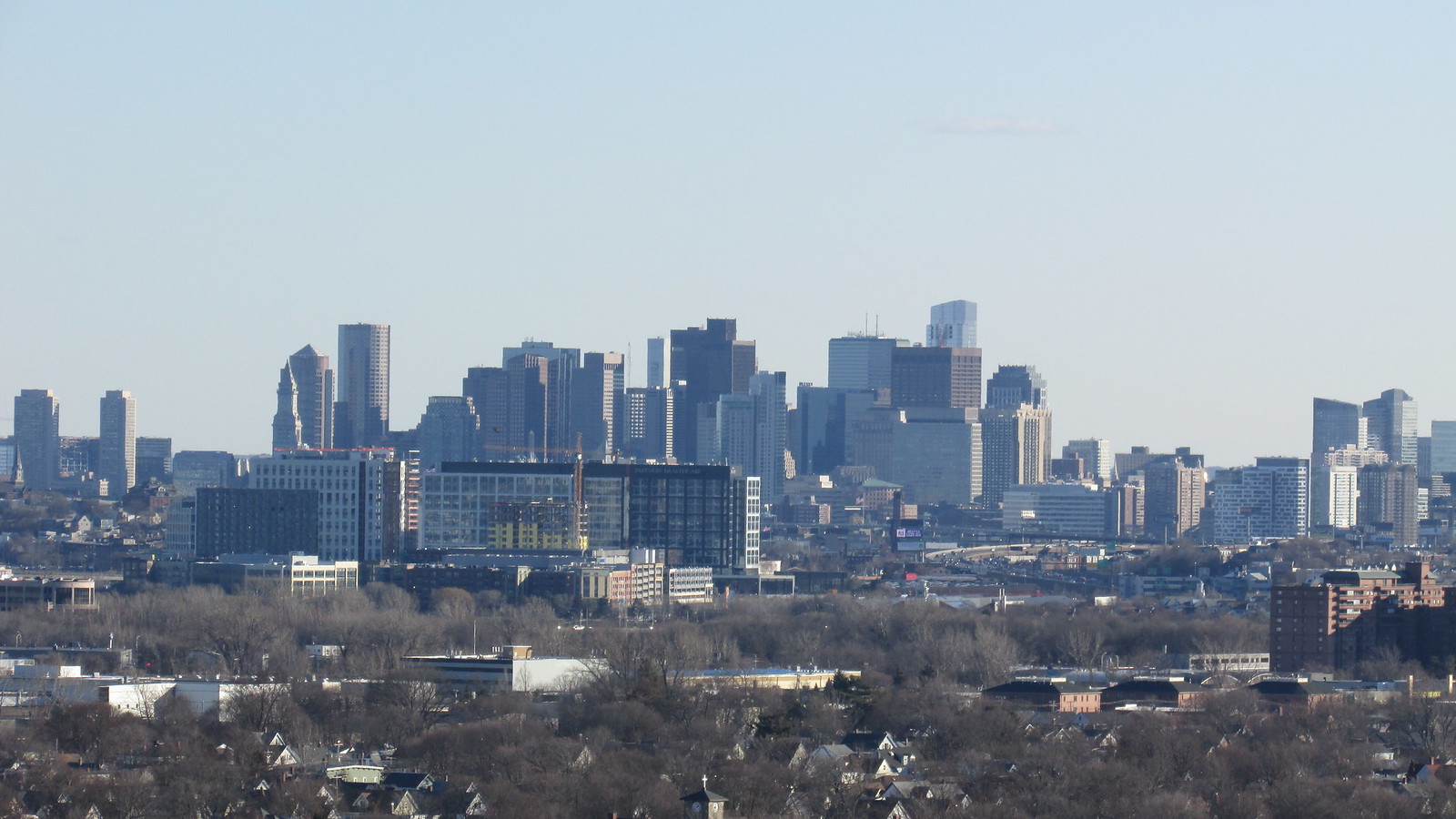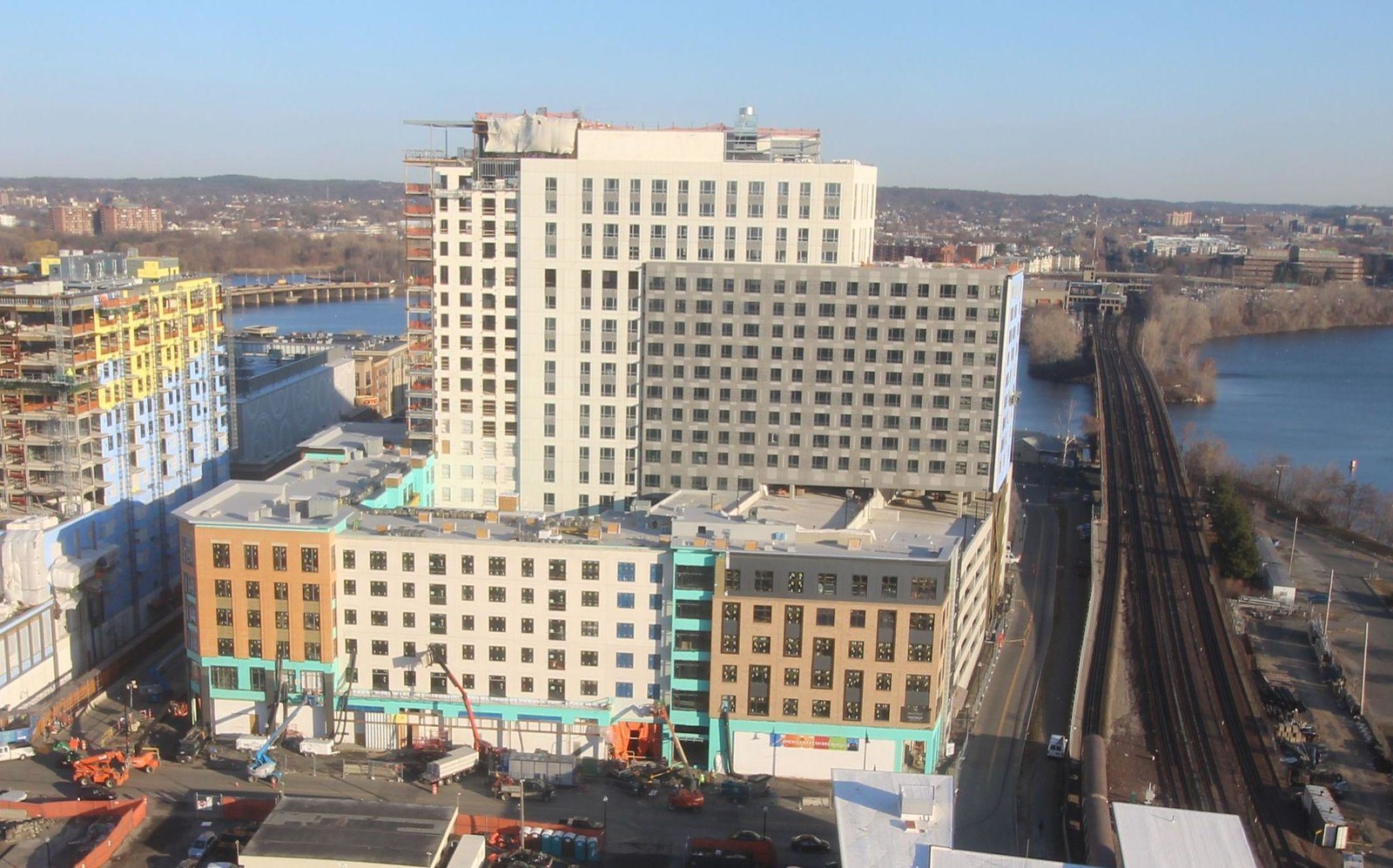You are using an out of date browser. It may not display this or other websites correctly.
You should upgrade or use an alternative browser.
You should upgrade or use an alternative browser.
Assembly Square Infill and Small Developments | Somerville
- Thread starter statler
- Start date
- Joined
- Dec 10, 2011
- Messages
- 5,599
- Reaction score
- 2,717
I find the Chain vs Local debate unanswerable and pointless.
It is the aggregation of personal choices, and there's no debating taste. For people who like either sort of thing, that's the sort of thing they like. What's right* for Assembly is whatever people like at Assembly and vice versa.
Should there be only one Mike's Pastry, Regina Pizzeria , and Modern Bakery in the North End or can we get clones at Assembly, Quincy Market (and 16 others), and Medford Square, respectively?
*There's no right/wrong. There's no must/should. This can only be a "the market will decide".
When you find a perfect local gem in someone else's town, if enough people wish for a branch of that store "back home" in your town, you'll likely get one. It is from this that the chain imperative arises. Successful one-store retailers get systematized and cloned.
Unless the store's success is intimately tied to the owner/expert/founder (as, say, ballet shoe fitting turns out to be) stores get turned into chains because we love them too much.
That love determines what stores work where. Chains succeed because they have a well-thought out system that delivers people what they want, and people like choice and their tastes differ.
Personally, my favorite North End Pizza is Ernesto's. It is charming as a hole in the wall on Salem St, but if they wanted a branch walking distance to my house, I'd be happy to see it displace my local hole in the wall.
It is the aggregation of personal choices, and there's no debating taste. For people who like either sort of thing, that's the sort of thing they like. What's right* for Assembly is whatever people like at Assembly and vice versa.
Should there be only one Mike's Pastry, Regina Pizzeria , and Modern Bakery in the North End or can we get clones at Assembly, Quincy Market (and 16 others), and Medford Square, respectively?
*There's no right/wrong. There's no must/should. This can only be a "the market will decide".
When you find a perfect local gem in someone else's town, if enough people wish for a branch of that store "back home" in your town, you'll likely get one. It is from this that the chain imperative arises. Successful one-store retailers get systematized and cloned.
Unless the store's success is intimately tied to the owner/expert/founder (as, say, ballet shoe fitting turns out to be) stores get turned into chains because we love them too much.
That love determines what stores work where. Chains succeed because they have a well-thought out system that delivers people what they want, and people like choice and their tastes differ.
Personally, my favorite North End Pizza is Ernesto's. It is charming as a hole in the wall on Salem St, but if they wanted a branch walking distance to my house, I'd be happy to see it displace my local hole in the wall.
Last edited:
odurandina
Senior Member
- Joined
- Dec 1, 2015
- Messages
- 5,328
- Reaction score
- 265
does anyone have an estimate of the high population number of A.R. after completion??
^I find it surprising to hear arguments supporting pure capitalism when it comes to chain vs independent retail, on a site where the primary arguments revolve around government intervention to prevent just about every kind of raw capitalist, development related outcome. If you think simply having people patronize an establishment is an argument for it, then let's apply that to buildings and roads - why should the government dictate the design and attractiveness of a development, and why should they demand so many transportation concessions when simply building roads is cheaper and more popular, evidenced by the fact that they fill with traffic whereever you build them?
Local governments have just as much obligation to tend to the local commercial environment as the state and national government do with larger projects. Assembly Row is a decent place for a big chain sports bar (other than Brookline, all other Mass locations are on interstate highway exits), but that's not true for everywhere. Simply arguing for unrestricted commercial development, regardless of the business, is completely ridiculous. It's a good thing that there is no McDonalds in Woods Hole, no Starbucks in JP (sadly Caffe Nero slipped in, also DD), no Chick Fil A or Walmart in Boston. Government's business is to support the local, not the corporation. You could obliterate all of Harvard Square and make it a plastic paneled, four story mall with only national chains and it would be filled with people; this would not be an argument for its success.
Local governments have just as much obligation to tend to the local commercial environment as the state and national government do with larger projects. Assembly Row is a decent place for a big chain sports bar (other than Brookline, all other Mass locations are on interstate highway exits), but that's not true for everywhere. Simply arguing for unrestricted commercial development, regardless of the business, is completely ridiculous. It's a good thing that there is no McDonalds in Woods Hole, no Starbucks in JP (sadly Caffe Nero slipped in, also DD), no Chick Fil A or Walmart in Boston. Government's business is to support the local, not the corporation. You could obliterate all of Harvard Square and make it a plastic paneled, four story mall with only national chains and it would be filled with people; this would not be an argument for its success.
- Joined
- Dec 10, 2011
- Messages
- 5,599
- Reaction score
- 2,717
If FRIT wants to curate a mix of local/national stores, they should and will probably be good at it.
How, exactly would Somerville legislate against chain stores? And how do you keep it honest and not patronage?
Columbus OH airport (as it happens) , had all local food vendors, which were 100% local, awful, overpriced, knock-offs of national chains reselling standard SYSCO food at airport prices. Hooray for shop local!
As for Harvard Square, would we be better off if instead of Bank of America, Capital One, and TD Bank we had steered that business to local flavor like East Boston Savings, Salem Five, and maybe the Teamsters credit union?Banks are retail too.
How, exactly would Somerville legislate against chain stores? And how do you keep it honest and not patronage?
Columbus OH airport (as it happens) , had all local food vendors, which were 100% local, awful, overpriced, knock-offs of national chains reselling standard SYSCO food at airport prices. Hooray for shop local!
As for Harvard Square, would we be better off if instead of Bank of America, Capital One, and TD Bank we had steered that business to local flavor like East Boston Savings, Salem Five, and maybe the Teamsters credit union?Banks are retail too.
Last edited:
^yes, we would... the big banks are part and parcel of the corporate-driven financial mess of '08. Concentrating power in the hands of the few is never a good thing. Everyone benefits from independence. Very much agree with you that the implementation has its challenges, but it's possible to do, and has been done. There's plenty of corrupt patronage in Boston towards gain establishments, too, anyway. And there's plenty of ways to enact smart municipal policies that support independent business.
My initial rankling was at being told that the presence of people in an establishment immediately says it must be fine, and if one doesn't like something, don't go there. That's a very dangerous assertion to make. That was also the mentality that held back civil rights legislation in 1957, among many other things - certainly, the majority of voters in the segregation states supported continuing segregation laws - ie, they were popular. Did that make it ok? Was the fact that the Rockefellers and the Carnegies had plenty of business in itself an argument to simply allow the robber baron monopolies to continue unhindered? And is the fact that ugly buildings still fill up with people an argument to just allow developers to build the cheapest, ugliest boxes? There's a million examples of this... people as groups will settle for the status quo, and that is absolutely not a good reason to settle for it as individuals.
My initial rankling was at being told that the presence of people in an establishment immediately says it must be fine, and if one doesn't like something, don't go there. That's a very dangerous assertion to make. That was also the mentality that held back civil rights legislation in 1957, among many other things - certainly, the majority of voters in the segregation states supported continuing segregation laws - ie, they were popular. Did that make it ok? Was the fact that the Rockefellers and the Carnegies had plenty of business in itself an argument to simply allow the robber baron monopolies to continue unhindered? And is the fact that ugly buildings still fill up with people an argument to just allow developers to build the cheapest, ugliest boxes? There's a million examples of this... people as groups will settle for the status quo, and that is absolutely not a good reason to settle for it as individuals.
Don't lose sight of the fact that many of the local/independent restaurants simply do not have either the capital or credit to support a full scaled restaurant build out. The LL is only proving a cold dark shell in most cases, so there needs to be a significant investment from the tenant as well. Obviously, a landlord and their shareholders are much more comfortable for credited regional or national tenants that have recourse behind their leases.
stick n move
Superstar
- Joined
- Oct 14, 2009
- Messages
- 12,093
- Reaction score
- 18,872
- Joined
- May 25, 2006
- Messages
- 7,033
- Reaction score
- 1,865
I'll never knock this for looking like a Disney theme park of a real city. It's the most successful modern TOD in the area.
I'll never knock this for looking like a Disney theme park of a real city. It's the most successful modern TOD in the area.
Totally agree. Much better than developments at Alewife and Northpoint.
I'll never knock this for looking like a Disney theme park of a real city.
Haha. They should've built a downscaled version of downtown Boston here, vegas style mini buildings and all. Not too late for a 20 story custom house tower!
Jahvon09
Senior Member
- Joined
- Oct 2, 2011
- Messages
- 3,358
- Reaction score
- 824
I'll never knock this for looking like a Disney theme park of a real city. It's the most successful modern TOD in the area.
Speaking of theme parks, I think that they should put an inside one at the Wynn Casino in Everett. It would be great entertainment for the kids!
Jouhou
Active Member
- Joined
- Nov 3, 2015
- Messages
- 683
- Reaction score
- 51
Haha. They should've built a downscaled version of downtown Boston here, vegas style mini buildings and all. Not too late for a 20 story custom house tower!
Actually, downscaled boston exists here. In legoland.
https://boston.legolanddiscoverycenter.com/whats-inside/miniland/
Actually, downscaled boston exists here. In legoland.
https://boston.legolanddiscoverycenter.com/whats-inside/miniland/
AWESOMMMME. I gotta go one of these days.
A bunch of new documents for Block 8 and block 5B were submitted to Somerville and will go before the board on April 20th.
Plans and updated renders of the building can be found at the site below.
http://archive.somervillema.gov/departments/planning-board/reports-and-decisions
Plans and updated renders of the building can be found at the site below.
http://archive.somervillema.gov/departments/planning-board/reports-and-decisions
Equilibria
Senior Member
- Joined
- May 6, 2007
- Messages
- 7,085
- Reaction score
- 8,315
Block 5B Plans: http://archive.somervillema.gov/sites/default/files/documents/5B-sectionsF_OpenSpArchtModel.pdf
Block 8 Plans: http://archive.somervillema.gov/sites/default/files/documents/ASQ_Block8-SectionsF2-4_0.pdf
Also, Somerville has a new website up that allows you to sort by update date:
http://www.somervillema.gov/departm...and-community-development/planning-and-zoning
Block 8 Plans: http://archive.somervillema.gov/sites/default/files/documents/ASQ_Block8-SectionsF2-4_0.pdf
Also, Somerville has a new website up that allows you to sort by update date:
http://www.somervillema.gov/departm...and-community-development/planning-and-zoning
Tough to tell for sure, but it looks like Block 8 might be the tallest in the bunch. Otherwise it's about the exact same height as the current tallest there.
I notice that there are a few buildings that all seem like the exact same height. Is there a specific height limit in Assembly that the developers are building right up to? It looks like it is going to end up blocky like the seaport, except with much more ~6 story low-rises mixed in.
I notice that there are a few buildings that all seem like the exact same height. Is there a specific height limit in Assembly that the developers are building right up to? It looks like it is going to end up blocky like the seaport, except with much more ~6 story low-rises mixed in.
Equilibria
Senior Member
- Joined
- May 6, 2007
- Messages
- 7,085
- Reaction score
- 8,315
Tough to tell for sure, but it looks like Block 8 might be the tallest in the bunch. Otherwise it's about the exact same height as the current tallest there.
I notice that there are a few buildings that all seem like the exact same height. Is there a specific height limit in Assembly that the developers are building right up to? It looks like it is going to end up blocky like the seaport, except with much more ~6 story low-rises mixed in.
I thought so too, but the model is a massing thing. If you look at it closely, it doesn't rotate some of the tower portions and includes more of them.
The Partners Building looks like the standard max height, but to be fair, there are low-rise and mid-rise portions of Assembly. SBW is all one height.
JumboBuc
Senior Member
- Joined
- Jun 26, 2013
- Messages
- 2,661
- Reaction score
- 1,559
I thought so too, but the model is a massing thing. If you look at it closely, it doesn't rotate some of the tower portions and includes more of them.
The Partners Building looks like the standard max height, but to be fair, there are low-rise and mid-rise portions of Assembly. SBW is all one height.
The residential buildings at parcels 6 and 8 will both be taller than the Partners building.

